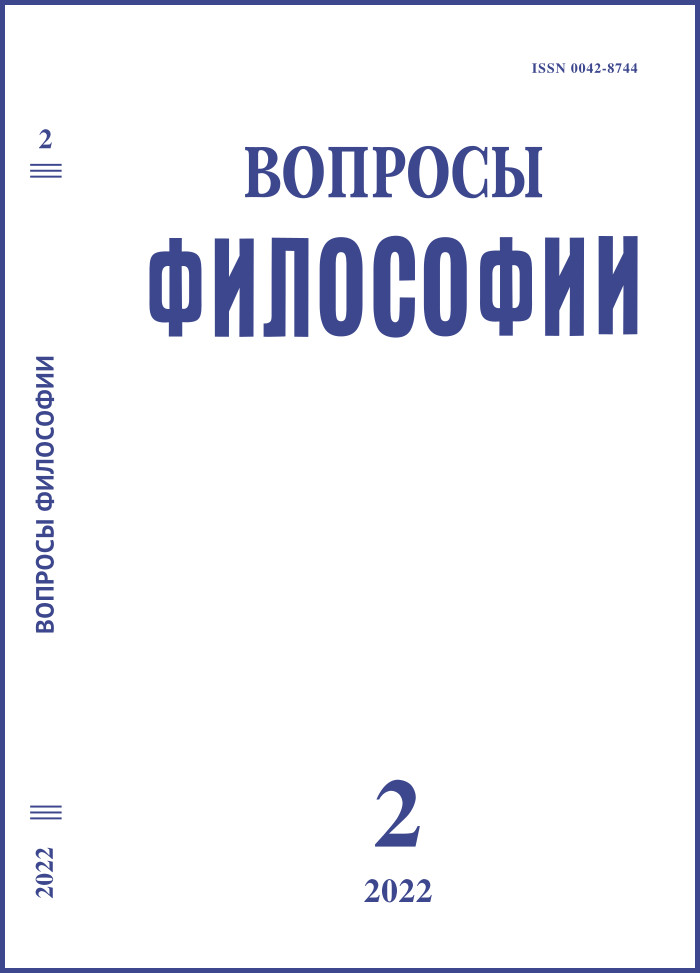Вопрос о концептуализации философии: Хайдеггер и Ласк
DOI:
https://doi.org/10.21146/0042-8744-2022-2-158-168Ключевые слова:
Хайдеггер, Ласк, феноменология, смысл, значение, значимость, категория.Аннотация
Статья посвящена анализу подходов к концептуализации философского исследования в проектах фундаментальной онтологии Хайдеггера и логики философии Ласка. Основанием для их сопоставления служит адаптация некоторых из понятийных средств философии Ласка в работах Хайдеггера. Разрабатываемый в статье подход продолжает наметившийся в исследовательской литературе анализ генезиса понятий фундаментальной онтологии, который предполагает обращение к ранним работам Хайдеггера и выявление значимых интертекстуальных связей, в число которых, несомненно, входит концептуальная связь философии Хайдеггера с трудами неокантианца Ласка. Цель данной работы состоит прежде всего в том, чтобы показать, что за указанной адаптацией понятийных средств кроется общее для обоих философов проблемное поле исследования, которое наиболее явно представлено в их метафилософских рассуждениях, связанных с проблемой формирования категорий философии. Для этого в статье рассматриваются наиболее значимые для данной проблемы идеи Ласка, такие как разграничение ролей конститутивных и рефлексивных категорий, принцип материальной определенности логических форм, категориальная затронутость «нечувственного» материала и др., а также такие понятия, как «значимость» (Geltung), «обстояние» (Bewandtnis), дотеоретические значения, момент ясности и др. При этом отмечается, что Хайдеггер усваивает указанные идеи критически, а также выстраивает собственную стратегию концептуализации бытийного вопроса на основаниях, методологически отличных от логики значимости Ласка.
Загрузки
Опубликован
Версии
- 2025-02-06 (2)
- 2022-02-28 (1)

